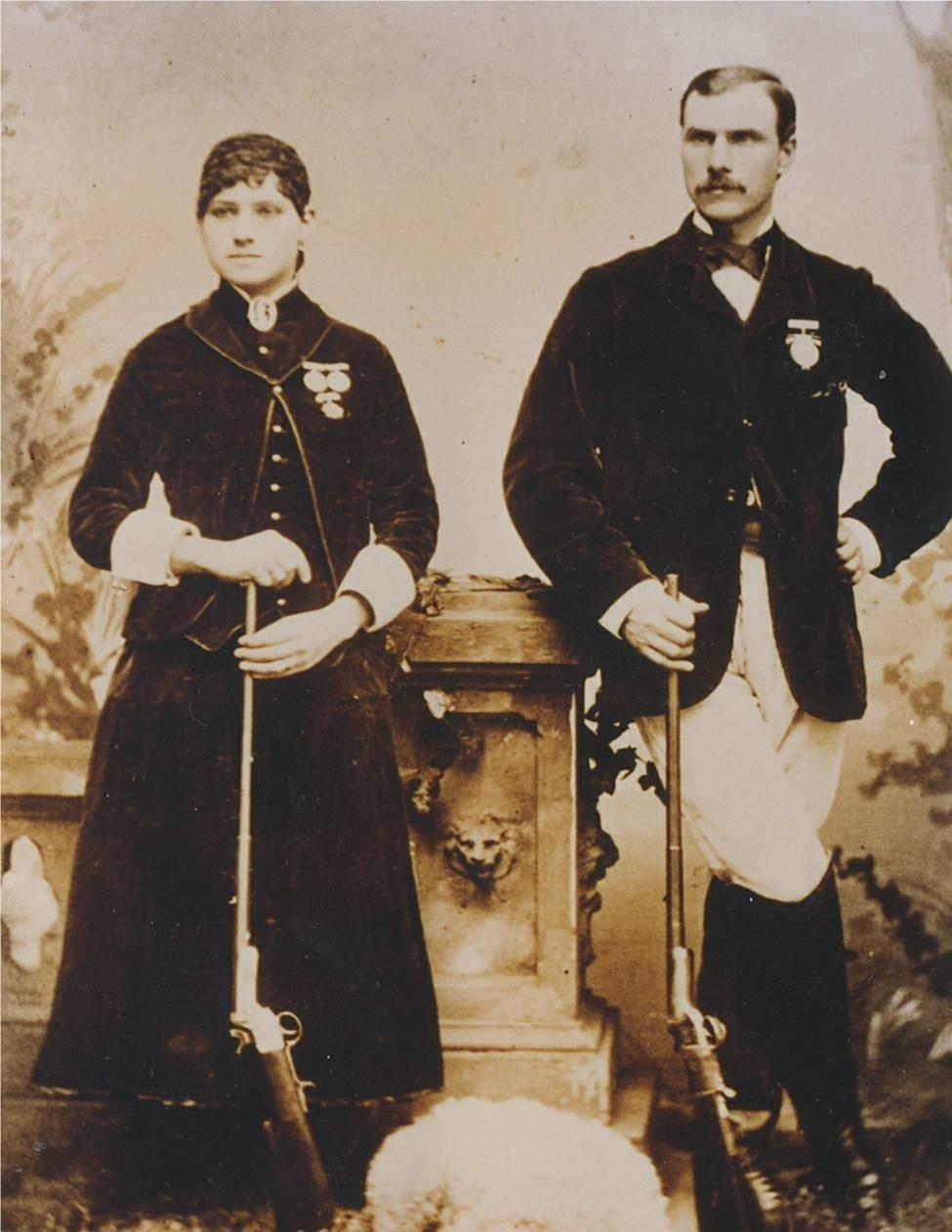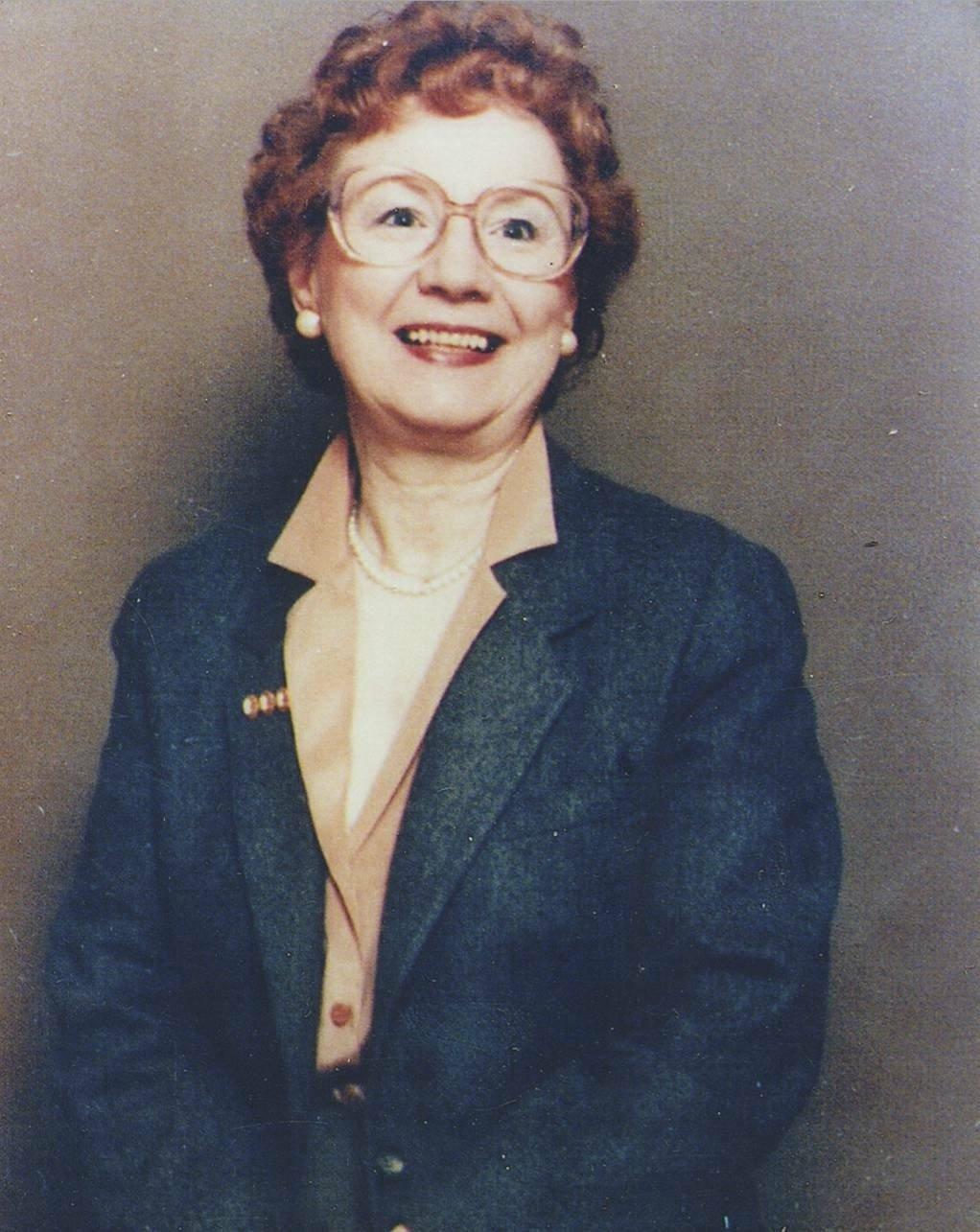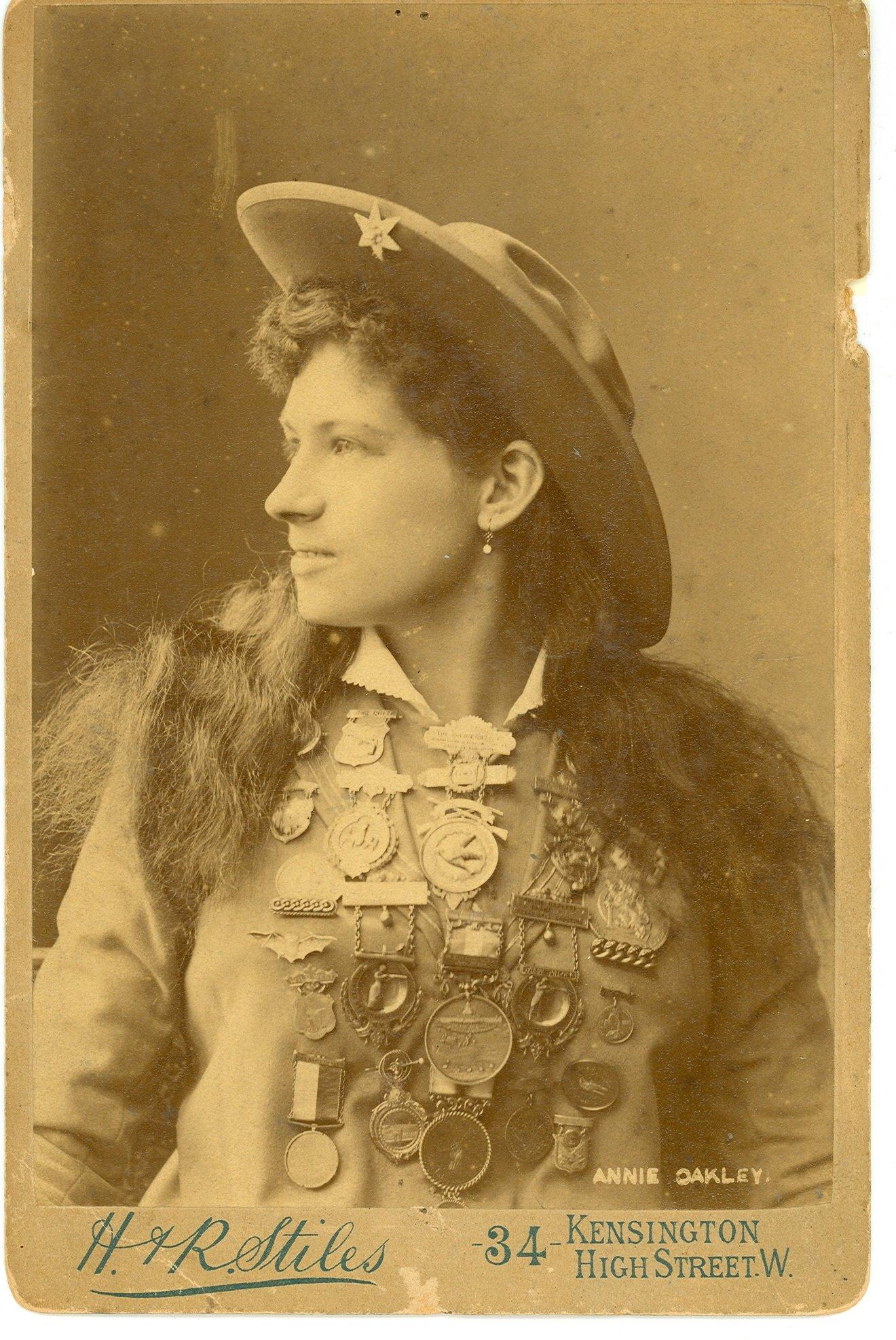Did You Know This?
Aim at a high mark and you will hit it. No, not the first time, nor the second and maybe not the third. But keep on aiming and keep on shooting for only practice will make you perfect. Finally you'll hit the Bull's Eye of Success.— Annie Oakley
You hear the name Annie Oakley and you most likely think of a simple-minded country girl who co-stared in Buffalo Bill's Wild West Show as a sharp shooter in the late 1800s. According to the widely popular story of Oakley's life, she fell madly in love with the sophisticated Frank Butler who was attracted to her as well but quickly turned his attention to more demure women when she bruised his ego by beating him in a shooting match. They supposedly remained apart until Oakley's adoptive father, Chief Sitting Bull, explained to the young, naïve girl that men can't tolerate women who can beat them. To win Butler's heart, Oakley forfeited the next match, and she lived happily ever after in Butler's shadow.
If this is what you believe about Annie Oakley, think again because Oakley's grand niece, 87-year-old Bess Edwards is ready and more than willing to set you straight.

The letter begins, For those who swallowed all the bunk, baloney and balderdash about Annie's life, this is for you.
The Stage Name
Annie Oakley was born Phoebe Ann Mosey to parents Susan Wise and Jacob Mosey. They were Quakers from Hollidaysburg, Pennsylvania, who married in 1848. A fire burned down their tavern so they moved to a rented farm in Patterson Township in Darke County. Her father died in 1866 from pneumonia and overexposure in freezing weather. Her mother remarried and had another child, and was widowed a second time. During this time, Oakley was put in the care of the superintendent of the county poor farm, where she learned to sew and decorate. She then lived in near-slavery with a local family where she endured mental and physical abuse. Oakley referred to this family as the wolves.
After two years of horrendous abuse, Oakley ran away from the wolves. At the train station, she met a kind older man who could sense that Oakley needed help.
She was breathless and fearful, Edwards said. The man felt bad for her and paid her train fare, which was the first big act of generosity Annie had ever experienced. When the train stopped, Annie thanked the man and asked for his name. He told her, 'Mr. Oakley.' Annie replied, 'I will never forget you, Mr. Oakley.' And she didn't. When Frank and Annie agreed not to be billed as husband and wife on the vaudeville circuit, Annie adopted the last name of Oakley in honor of the man who paid her train fare home.'
Oakley, as Edwards puts it, was not an ignorant little creature that fell out of the woods with a gun on her shoulder but didn't know what to do with it.
Edwards would prove quite the contrary. As stated in a pamphlet recently published by the Annie Oakley non-prophet Foundation founded by Edwards, Annie Oakley overcame poverty, prejudice, physical setbacks and her inner modesty to become a star shooter and a woman who broke barriers for other women in the entertainment industry and in trapshooting, sport hunting and self-defense arenas.
Oakley believed in and campaigned for women's rights to hold paid employment, earn equal pay, participate in sports and defend themselves in their homes and on city streets. According to Edwards, Oakley was not only a remarkable shooter and entertainer, but she was a champion for all women. In turn, Edwards has made it her mission to be a champion for Oakley.
Gear Highlight: Limited Edition Browning A5 Shotgun in Realtree MAX-5
One of Edwards' most difficult tasks was confirming Oakley's real name. Edwards began communicating with historians, old publishers and gun clubs long ago closed. She meticulously fact checked every bit of information provided her and discovered 10 different spellings of the family name. She finally concluded that the sharp shooter's true last name was Mosey as recorded by the 1870 census and on family tombstones.
Annie's real name, Phoebe Ann Mosey, the date and place of her birth, the date and place of her only marriage and more were falsified and twisted like no other woman's in history, said Edwards.
The myth was further exacerbated as a result of Irving Berlin's musical Annie Get Your Gun. For more than 62 years, this production has entertained theater goers around the world, but according to Edwards, left them with a false characterization of Annie.
I've attended at least 60 of these professional and amateur plays and found them all galling and painful to sit through, Edwards said. I remember when my grandpa saw the production for the first time. My cousins claimed that he cried all the way through it. In fact, the lies burdened and disappointed him so much, that my grandmother believed that it caused his death 21 days later. He was 87 years old, and we think it was more than his heart could stand.
About Annie
Born near Greenville, Ohio, on August 13, 1860, Phoebe Ann Mosey learned to shoot while hunting game for her widowed mother, her only brother and her sisters. After she met and married Frank Butler, she chose the professional name of Annie Oakley and began to tour the vaudeville circuit. Between 1885 and 1901 she starred in the Buffalo Bill Wild West Show. She proved herself an outstanding athlete in trapshooting competitions and shooting exhibitions. Sioux warrior Chief Sitting Bull was so impressed by Oakley's skill that he adopted her, giving her the name "Watanya Cecilia" — "Little Sure Shot." As the first well-known woman sport shooter, she opened shooting ranges and matches all across the nation and Europe.
Annie set an example for women and helped change the American public's mind regarding what were appropriate sports and activities for women. She also argued for a woman's right to bear and use firearms, for both sport shooting and for self-defense. She coached more than 2,000 women in firearm safety and shooting. She traveled the East Coast at her own expense demonstrating the safe and effective use of firearms for World War I soldiers.

Telling the Story
This pain resulting from the lies about Oakley drove Edwards to gather historically accurate material.
I am old myself and my health has become fragile, Edwards said. Over the past several years I've feared that I might die and the truth about Annie would not be told.
Afraid that Oakley's true story would perish with her, Edwards worked tirelessly gathering enough information from century-old records and her best childhood memories of conversations held between Oakley's only brother (Edwards' grandfather) and visitors for a DVD documentary called Annie Oakley - American Legend, which is viewed in schools throughout the country.
Edwards has also established The Annie Oakley Foundation with the mission statement of providing accurate information on the life and legend of Annie Oakley, to disseminate educational materials and to create and maintain the Annie Oakley Education, Cultural and Sports Activity Center.
In addition to working on plans for the cultural center, Edwards is working with designers and copyright lawyers to create an Annie Oakley doll for young girls who find inspiration in Oakley.
Why the insatiable drive to tell Oakley's true story?
I don't know if Annie's spirit is with me, but something is definitely pushing me forward, Edwards said.
The journey to truth has been long and bumpy, and the mountain of misinformation has been daunting, but each day Edwards gets a little closer to revealing Annie's true life story in full.
Annie deserves more than the myth dreamed up by Buffalo Bill and his co-owner, Nate Salsbury, and exacerbated by the 'Annie Get Your Gun' musical, Edwards said. I want the world to know that she was truly a remarkable woman.
Editor's note: This was originally published May 8, 2009.
Are you a hunter thirsty for knowledge? Check out our stories, videos and hard-hitting how-to's on shooting and hunting.









